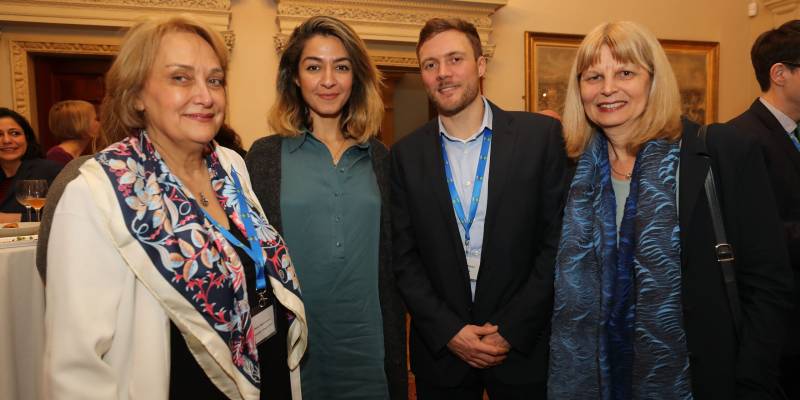Trust in Expertise in a Changing Media Landscape
Virtual Scientific Conference
18 – 19 March 2021
This multidisciplinary conference brought together outstanding researchers from all over the world to discuss how best to assess, establish and maintain the credibility and trustworthiness of expertise in a rapidly changing media environment. Scholars presented their latest findings on questions of trust and trustworthiness, expertise, science and technology, policy, and the media.
Watch the video recordings here!
Conference Theme
In democratic societies, trust in the provenance and justification of policy measures are essential for their implementation. Trust in scientific expertise – both in experts and in scientific institutions – has become a contested subject in the wake of recent political and social developments, particularly the emergence of populist sentiments. At the same time, newspapers and journalists have always played an important part in the shaping of public trust in public debates. However, the recent contestations also draw attention to questions of trust in media organizations. Are they fulfilling their role as watchdogs of democracy and mediators of informed public debate? Can they be considered ‘pillars of institutional trust’ themselves?Over the past decade, the traditional media landscape has substantially transformed into a globalized, technologically mediated and commoditized environment – a transformation that coincided with increasingly volatile levels of trust in institutions, whether academia, politics, governments, or legacy media. Online sources for information, including information about various areas of scientific expertise, provide new, low-threshold opportunities to communicate. Social media, blogs and vlogs offer unlimited and boundless sources for the public to inform themselves quickly, mostly free of charge and everywhere. The credibility and hence trustworthiness of such sources are difficult to assess. It is often unclear who says what in which context and based on what authority or expertise, particularly if information is decontextualized from its original source and distributed through social media.The problem of trust in (social) media has been further exacerbated by the persistent problem of fake news and disinformation. A growing social media environment increasingly undercuts established societal/sectoral systems of trust, accountability and responsibility. Automated accounts (‘social bots’) as well as malicious human users (‘trolls’) play an important role in contemporary forms of disinformation. Reinforced by the anonymity of most online communication, such phenomena may bias users’ perception of the distribution of opinions, views and evidence. Meanwhile, social media platforms have attempted to refurbish trust in their online channels by resorting to human and algorithmic gatekeeping, with so far mixed results.Some of the most heated global discussions of our time directly implicate scientific knowledge claims. In recent years, the debates on Covid-19 as well as climate change are just two of many popular examples of trust contestation. In 2020, the corona-virus and its aftermath added a new stress test to public trust in science, politics, and media. These (online) contestations show how geopolitical and ideological battles come to target not just political and scientific institutions, but also legacy media or a combination of all three, thus raising the stakes of understanding public trust under changing conditions.
Download the full programme here!
Keynotes
- Donya Alinejad (University of Utrecht) | The Shifting Sands of Trust in a Changing Media Landscape
- Onora O’Neill (University of Cambridge) | Old and New Intermediaries
- Christoph Neuberger (Free University Berlin) | The Digital Transformation of the Knowledge Order
- Natali Helberger (University of Amsterdam) | In the Digital Service Act we Trust
- Michael Latzer (University of Zurich) | Trust and Faith in Automated Algorithmic Selection
Roundtable Discussion | Governing Trust in European Platform Societies
- Stefan Larsson – Lund University
- Jo Pierson – Free University Brussels
- Alison Powell – London School of Economics & Political Science
- Judith Simon – University of Hamburg
- José van Dijck – University of Utrecht (Moderator)
Conference Organisers




